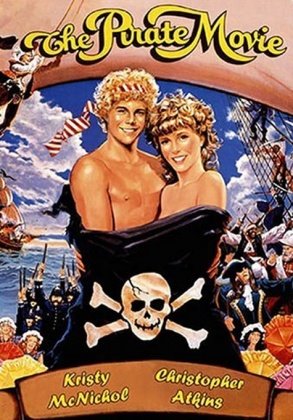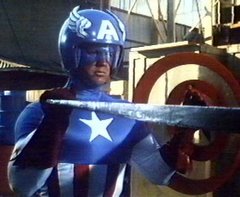
Wright, Pegg put the fizz in 'Fuzz'
Finally, someone got it right.
After countless, tin-earned, musty, half-assed attempts at “parody” by merely referencing other films, someone understood the actual meaning of the word.
That someone is Edgar Wright and his writing partner/actor Simon Pegg.
While the parade of generic, assembly-line cheapies proved as inspired as their titles -- “Epic Movie,” “Date Movie,” “Not Another Teen Movie” -- threatening to drive a stake through the heart of the once-inspired cinematic genre, a couple of Brits took command of the zombie film a few years back with the
lively, Elysian “Shaun of the Dead.”
The talented twosome return with “Hot Fuzz,” an ode to the orgies of senseless sensory onslaught known as the action film.
Now, I know what you are thinking -- “Where are my keys?” Or, perhaps you are thinking “With names like Bruckenheimer and Bay in the business, isn't the action genre already a parody of itself now, anyway?”
And, in a sense it is. Perhaps that is why their success while taking on such a task is all the more commendable. From the first frame, “Fuzz” is not merely slavishly devoted to crescendos of crashes and ballets with bullets, but it digs deeper into the more subtle contexts of the gun-loving genus of cinema. And while never missing an opportunity to toss in a random gag, it is never at the expense of the film's continuity and character development.
Fuzz fizzes with the best of the ZAZ boys (that would be the Zucker-Abraham-Zucker team, responsible for such mirth-filled mayhem as “Naked Gun,” “Top Secret!” and “Airplane!”).
Pegg, who also penned the script, stars as Nicholas Angel, a humorless London supercop whose arrest record supersedes the departments by more than 400 percent, and must be transferred so that the lesser officers do not appear as inept as they are comfortable being.
The film begins with an lineup of some of comedy's tops of the Thames – Bill Nighy (“Pirates of the Caribbean: Dead Man's Chest”), Steve Coogan (BBC's “Alan Partridge”) and Martin Freeman (the British version of “The Office”) -- as Angel's superiors who shuffle him off to Sanford, a seemingly benign borough in Gloucestershire.
He immediately begins swinging the swift hammer of justice, booting boozing underage boys from a local pub and arresting an inebriated sot who, coincidentally, is the chief inspector's son and Angel's new partner, Danny (played by Nick Frost).
Danny is a lovable, blubbery lout who dreams of becoming a cop like the ones he views in his private DVD stash, including such titles as the Keanu Reeves trash-terpiece “Point Break” and the nadir of cinematic action excess “Bad Boys 2.”
Upon hearing of Angel's exploits as a London lawman, he enthusiastically bombards his partner with such only-in-the-movies situations as “Have you ever fired two guns whilst jumping in the air?” and “Is there a part of the human head where, if you shoot it, it explodes?”.
But Danny is the only officer who approaches his job with any sort of enthusiasm. The rest of the lot are comfortable imitating officers and detectives while enjoying the perks of teatime snacks of cake and ice cream.
Of course, the bucolic burbs of Sanford may not be what they appear when a number of prominent citizens become involved in some rather grisly deaths. Angel immediately suspects a nefarious grocery store owner (a never-better Timothy Dalton) and is hell-bent on uncovering the truth, as well as getting his layabout colleagues to invest any interest whatsoever in his conspiracy theories.
This being an action film, Wright and Pegg never miss an opportunity to nudge the more overused conventions of the genre. Even the most innocuous gesture – a clicking pen, a coat being hung, a phone being answered – is accompanied by a deafening “Whoosh,” “Blam” or a “Clang,” not to mention the swirling camera pans and seizure-inducing editing.
The film clocks in at just a hair over two hours, and, at first, it seems a tad overlong. But in retrospect, that was most likely yet another nod from the producers to the bloated trappings of action films; just as every thread seems neatly tied, yet another unexpected “twist” barges in for that one final kick in the plot's pants.
If Americans devoted a couple of hours to the film (a “Hot Fuzz” Sunday, perhaps?) before multiplexes become bombarded with summer “blockbusters,” it may make viewing them all the more enjoyable, as well as make them appreciate this fawning filmic ode that understands that true parody is derived from august appreciation and not mere mockery.





2 comments:
what's your take on Waitress?
Loved it, and I am usually not won over by, pardon the pun, slice of life indies (Junebug left me yawning).
Post a Comment